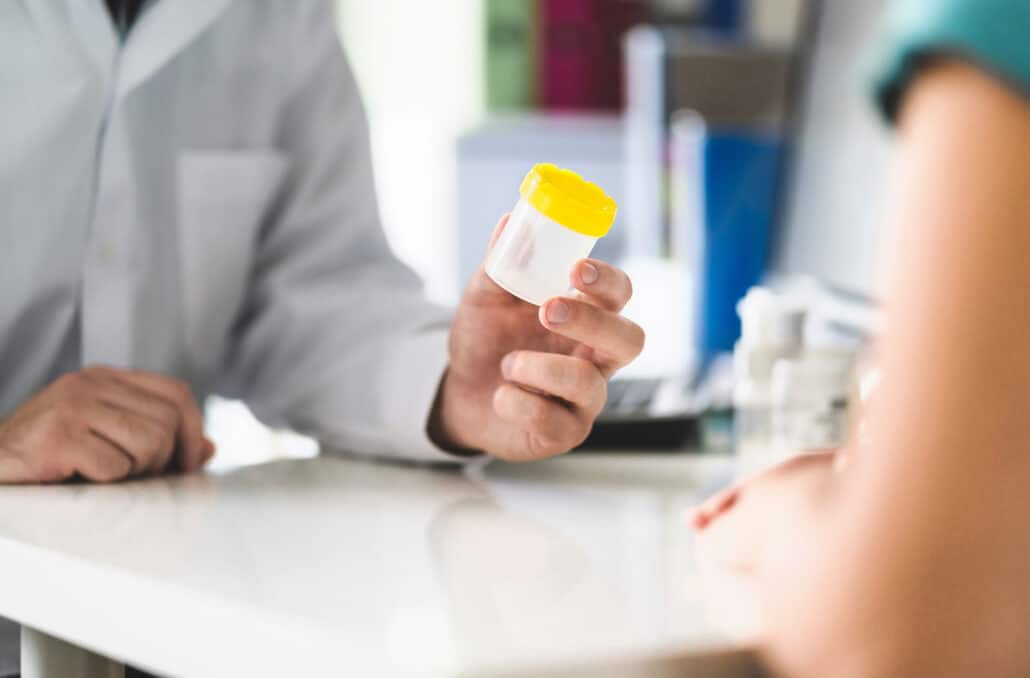According to a study published by the Journal of Pharmacy Practice, Adderall is misused by at least 10% of adolescents and young adults with a prescription. This makes it one of the most addictive prescription drugs on the market.
People who abuse Adderall may take numerous doses in a specific time frame to maintain the stimulant effects of the drug before a crash happens. When they fail to take the drug within the designated time, they may experience a “crash.” The crash follows unpleasant withdrawal symptoms, such as depression, trouble sleeping, sluggishness, and others.
Here’s what you should know when taking a 3-day Adderall break and what you can do to feel better.

Table of Contents
What Is the Adderall Comedown and Why Does It Happen?
A “comedown” is a term used to describe unwanted withdrawal symptoms after a user stops taking a stimulant—in this case, Adderall.
The reason behind the crash is simple. Stimulants like Adderall trigger the release of feel-good neurotransmitters in the central nervous system, which not only boosts energy but also increases feelings of euphoria, sharpens attention, and reduces the need for sleep.
But when the drug wears off, the opposite happens. The brain won’t release as many neurotransmitters, causing you to feel fatigued, depressed, and unable to concentrate. This can induce a rebound effect, forcing you to take more of the drug to recapture the effects you experienced after taking the drug.
When a person regularly takes certain drugs, their brain may begin to adjust to the presence of these substances. As the brain gets used to the substance, it’ll start to depend on it to function and feel “normal.”
In people who develop significant levels of dependence, a crash is often inevitable. Withdrawal symptoms may develop if the person quits “cold turkey” or substantially reduces how much they’re using.
During withdrawal, the body attempts to reach a new state of normal as it tries to get rid of the lingering effects of the substance in question. This can result in temporary disruptions in brain chemistry, which are often accompanied by mental and physical health repercussions.
How Long Does Adderall Stay in Your System?
Adderall’s effect lasts no more than a few hours, but it lingers in the system for days and sometimes even months after the last use.

Adderall has a half-life of 9 to 14 hours. To the uninitiated, “half-life” refers to the amount of time it takes for half the amount of a drug to be eliminated from the body.
In the case of Adderall, a 20 mg dose taken at 10 am will reach its half-life at around midnight, leaving 10 mg of Adderall in the body. At 2 am the next day, 5 mg will remain in the body. This means that the drug will leave the body completely after around five half-cycles or three to four days.
Adderall can be detected in the urine for 48 to 72 hours after last use, saliva for 20 to 50 hours, blood for up to 46 hours, and hair for up to three months. The period of detection is influenced by several factors, including frequency of use, urine pH, dose, last use, metabolism, and weight.
The drug is absorbed in the gastrointestinal tract and either eliminated in the urine or deactivated by the liver. Approximately 25% is converted to metabolites like benzoic and hippuric acids.
How Long Do the Effects of Adderall Last?
The effects of Adderall last between 4 to 12 hours.
Immediate-release Adderall is distributed in the bloodstream within three hours, with effects that last between four to seven hours. Extended-release Adderall, like Adderall XR, is distributed within seven hours, with effects that last up to 12 hours.
Some medications affect how quickly or slowly Adderall is released into the body. Vitamin C supplements and medications that increase the acidity of stomach contents, like guanethidine and reserpine, can decrease the length of time it lasts in the body.
On the other hand, gastrointestinal alkalinizing agents like sodium bicarbonate, monoamine oxidase inhibitors (MAOIs) like linezolid and isocarboxazid, and proton pump inhibitors (PPIs) like as omeprazole or pantoprazole can increase the absorption of Adderall.
Some doctors recommend taking Adderall before breakfast as food, which can affect how long it takes for Adderall to reach maximum blood levels. Taking Adderall with food will extend the drug’s efficacy by one to two hours, but its onset may take longer, and feel weaker.
Signs and Symptoms of Adderall Comedown
Adderall remains in the body for up to three days, but a crash can occur within hours of the last dose.

When the body has become physically dependent on Adderall, it’ll experience symptoms of drug withdrawal. These symptoms can range from mildly uncomfortable to severe and painful, depending on the dosage, how long the person was abusing the drug before deciding to stop, genetics, metabolism, and several other factors.
Physical symptoms of Adderall withdrawal include:
- Headaches
- Muscle aches
- Severe dehydration
- Temperature regulation issues, i.e., chills
- Irregular heartbeat
- Irregular breathing
- Changes in blood pressure
- Difficulty sleeping
Psychological symptoms include:
- Intense craving for Adderall
- Difficulty concentrating
- Anxiety or panic
- Feelings of depression
- Feelings of worthlessness or despair
- Irritability or frustration
- Increased/decreased appetite
- Fatigue
- Vivid and unpleasant dreams
Adderall withdrawal can last anywhere from days to weeks. In cases of severe addiction, it may linger for months.
3 Stages of Adderall Withdrawal
Adderall withdrawal usually falls into three-stage categories:
Stage 1: Acute Withdrawal Period
During this period, symptoms are at their most intense. They can last anywhere from a couple of days to a week.
Withdrawal symptoms can start as soon as six hours after the last dose.
In the first three days of withdrawal, the patient may find themselves feeling depressed, fatigued, and unable to sleep. These symptoms peak after three to five days, with intensity ranging from mild to severe depending on the factors mentioned above.
Symptoms felt during this period include irritability, anxiousness, and restlessness, as well as insomnia, headaches, increased appetite, nightmares, and difficulty concentrating.
Stage 2: Symptoms Decline in Intensity
Most physical symptoms subside after the first week of withdrawal. However, psychological withdrawal symptoms, such as moodiness, craving, and depression, may linger. This period may last anywhere between a week to several months.
Stage 3: Post-Acute Withdrawal Period
The post-acute withdrawal period, also known as the protracted withdrawal period, may appear weeks or months into recovery.
During this time, patients may experience symptoms similar to those found in mood and anxiety disorders, including insomnia, mood swings, and increased levels of anxiety even without external stimuli.Around 90% of recovering opioid users experience the symptoms brought about by the post-acute withdrawal period. Patients in this stage should practice self-care and seek help to reduce the chance of relapse.

How to Cope With Adderall Comedown
Withdrawal is one of the toughest aspects of addiction recovery. If you’re experiencing Adderall comedown, here are some ways to help you cope:
Keep Yourself Hydrated
Withdrawal can cause people to sweat, vomit, and have diarrhea, which can trigger dehydration. Thus, it’s crucial to keep yourself hydrated during a comedown.
Water not only replenishes lost fluid in your body but also helps you flush out the toxins from your system. In this way, it acts as a means of hydration and detoxification.
You can also take Gatorade and other sports drinks, but be mindful of their salt content. Don’t drink more than one bottle of sports drink a day.
Consume a Healthy, Well-Balanced Diet
Even if you don’t feel like eating, it’s important to consume at least two to three meals a day during and after the recovery period.
Avoid heavy and/or rich foods with lots of salt, as well as sugary, spicy, and acidic foods, as they can irritate your stomach and bowels. Instead, consume simple light foods like soups, fruits, vegetables, and meat.
If your stomach can’t handle solid foods, use meal replacement/supplement shakes. They’re palatable and easy to digest but shouldn’t replace solid foods completely.
Manage Stress
Withdrawal heightens feelings of stress and anxiety, so try to avoid places and situations that may worsen them.
Indulge in relaxing activities to help you unwind, such as taking warm baths and massages, doing yoga, reading a good book, and other activities you find rejuvenating.
Treat yourself with kindness and understanding; don’t be too harsh on yourself when you fail to clean the house or complete a task.
Exercise
Exercise and physical activity boost the production of the feel-good hormones serotonin and dopamine, which can help ease some of the symptoms associated with Adderall withdrawal. Exercise also allows you to get some much-needed fresh air and Vitamin D, improving your mood even further.
Cut Back on Other Stimulants
Alcohol, nicotine, caffeine, and other stimulants can worsen your withdrawal symptoms. They can likewise promote stress and anxiety. Thus, they’re best avoided during recovery.
If you can’t cut out caffeine from your diet, alternate between decaf and regular, then gradually taper off regular coffee.
Fix Your Sleep Schedule
Insomnia is a common symptom of Adderall withdrawal. Combat insomnia by proactively taking steps to improve your sleep quality.

Here are some tips to help with sleep:
- When in bed, try not to watch TV or use your smartphone, as it can stimulate your brain for several hours
- Try not to nap during the day. If you must, keep it for 30 minutes or less and not too close to bedtime
- Turn on “do not disturb” mode on your phone before going to bed
- Keep your room dark and comfortable cool
- Let yourself wind down for 30 to 45 minutes before going to bed
- Practice yoga and meditation during the evening
Remember Why
Withdrawals can sometimes feel all-encompassing. During times of helplessness, it’s important to remind yourself why you’ve cut back on Adderall in the first place. Keep those reasons close and never let go.
While you’re at it, remind yourself of how far you’ve come and how capable you are of continuing. Your symptoms are temporary; the longer you stay away from the drug, the less potent your symptoms will become.
Get Treatment
Treatment is especially crucial for long-term Adderall users. Without the help of treatment programs and therapy, there’s a high chance of relapse.
Treatment programs can help you manage and push through withdrawal symptoms. Plus, it might give you some comfort knowing that you’re not alone. Seeing other people experience the same challenges may encourage you to do your best.
Addiction is a chronic condition, and like other chronic conditions, treatment is necessary. Therapy is an essential part of the recovery process. It’ll help you cope with cravings and establish a supportive recovery network.
Furthermore, therapy can help you explore and tackle triggers, motives, and warning signs for substance abuse that you may not have been aware of.
Types of addiction therapy include:
- Behavioral (cognitive and dialectical behavioral therapy)
- NAD therapy
- Holistic therapy
- Experiential therapy (art therapy, music therapy, animal therapy, etc.)
- Biofeedback and EMDR therapy
Follow Your Doctor’s Advice and Prescriptions
Follow your physician’s instructions and treatment plan in the letter. Doctors want the best for their patients, so following their advice can lead to the best possible recovery.
Patients who struggle with withdrawal may be given certain prescription medications to alleviate symptoms. Some of these include Provigil for lethargy, Topamax and Neurontin for cravings, and Baclofen for stress and anxiety.
Final Thoughts
As with some other medications, Adderall may change the brain chemistry over time as the brain becomes used to it. Although it may help with attention deficit hyperactivity disorder medication (ADHD medication), it is prone to misuse. This can lead to addiction.
Those who have developed a dependence on Adderall feel tired and mentally foggy without it. The symptoms of Adderall withdrawal include mental health conditions such as difficulty concentrating, depression, irritability, insomnia, and anxiety, among others.
If you’re suffering from Adderall use or Adderall addiction and want to get out of it for your wellness, remind yourself that you don’t have to do this alone–your friends and your loved ones can help you push through the tough moments of your Adderall withdrawal symptoms.
You may also find treatment centers or healthcare facilities for drug use to check the best addiction treatment options suited to your needs.
Published on: 2023-03-06
Updated on: 2024-07-05

